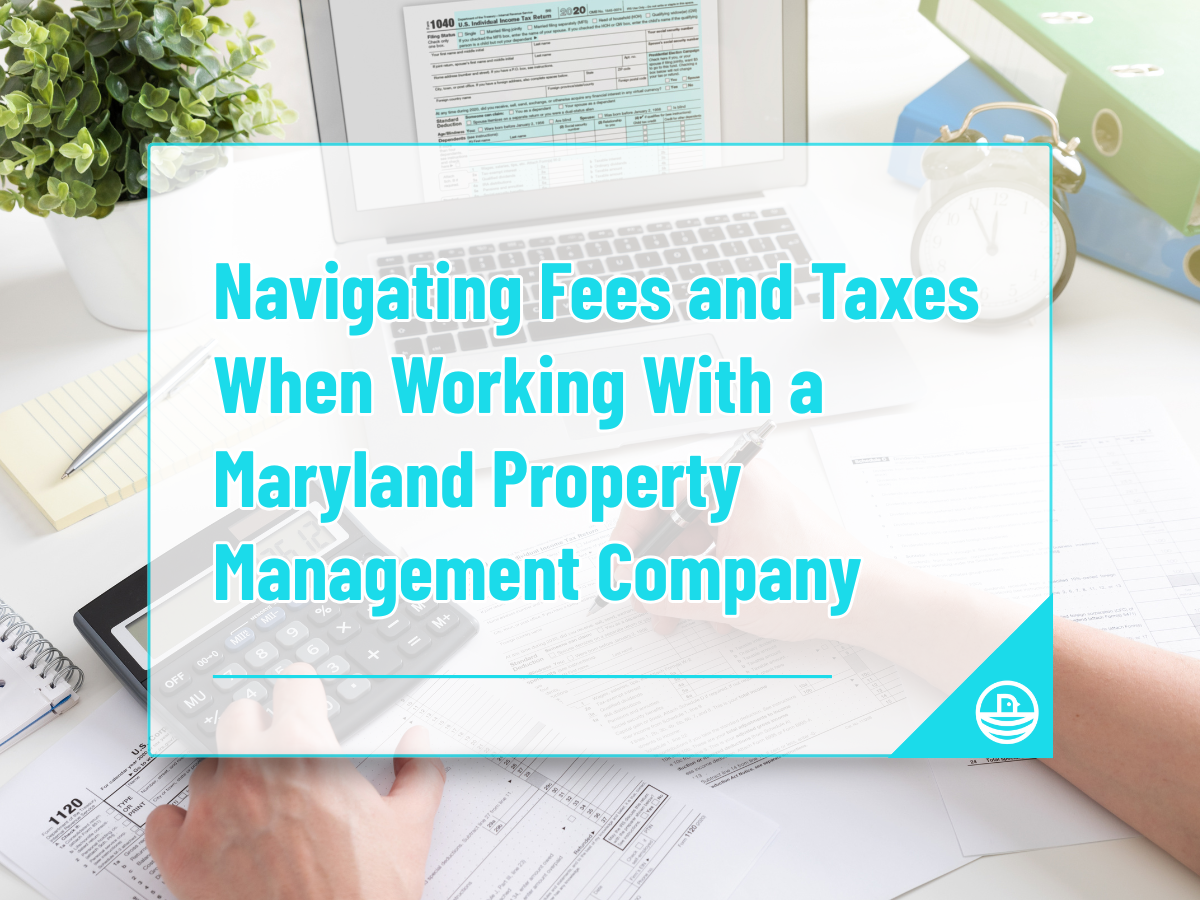How to Change Property Management Companies in Maryland
Changing property management companies can be a significant step for property owners in Maryland. Understanding the process can make it smoother and more efficient, whether it's due to rising costs, unsatisfactory service, or tenant complaints.
Introduction
In this article, we’ll explain how to change property management companies in Maryland. The process can seem daunting, but with the right information and preparation, it can be executed with minimal disruption to your property and tenants.
From reviewing contracts to communicating with tenants, each step is crucial for ensuring a seamless transition. By following these guidelines, property owners can make informed decisions that ultimately benefit their investment.

What Are the Most Common Reasons to Change Property Management Companies in Maryland?
One of the most common factors is cost; fees can vary significantly between companies, and finding a more affordable option can lead to increased profitability.
Another factor is your current management company’s ability to fulfill its obligations. If it is consistently failing to meet expectations, it may be time to seek a more reliable partner. Tenant complaints can also signal underlying issues; if residents are unhappy, it reflects poorly on the management and can affect occupancy rates.
Review Your Current Property Management Contract
Before making any decisions, it’s essential to review your current property management contract thoroughly. Pay particular attention to the termination clause, which outlines how and when you can end the agreement.
Notice periods and any financial implications of ending the agreement before its scheduled expiration date should also be carefully considered. Understanding your obligations and rights will ensure a smooth transition to a new company. In some cases, seeking legal counsel may be advisable to navigate complex contract terms.
What to Know About Property Management Company Termination Clauses
When examining the termination clause, look at how much notice you need to give and in what format. Some contracts may require written notice delivered via certified mail, while others may allow for electronic communication. Ensuring compliance with these requirements will help avoid potential disputes.
Research New Property Management Companies in Maryland
The next step is to research potential new property management companies. Look for firms with a solid reputation in the Maryland area, focusing on their experience and client satisfaction.
Online reviews, testimonials, and ratings can offer insights into the performance of various companies. Additionally, consulting with other property owners and industry professionals can yield recommendations that lead to promising candidates.
Evaluate Fees and Services
Consider the services offered by each company, such as resident screening, property inspections, rent collection, and maintenance coordination.
Make sure these offerings align with your property management needs and desired level of involvement. A company that provides comprehensive services may justify higher fees, while a more hands-off approach may appeal to those looking to minimize costs.
Review Your Legal Obligations
Before finalizing any agreements, ensure that your new property management company is compliant with all local, state, and federal laws governing rental properties. This includes verifying that the new company has the necessary licenses and certifications to operate in Maryland.
Familiarizing yourself with any changes in regulations will help you stay informed and avoid potential legal issues in the future. A reputable management company should be well-versed in these matters and able to provide guidance as needed.
Notify Your Current Property Management Company
After selecting your new property management company, it’s time to notify your current company of your decision. Follow the procedures outlined in your contract for providing notice. This typically involves submitting a written notice that clearly states your intent to terminate the agreement.
Be professional and concise in your communication, stating your reasons for termination, the effective date, and any requirements for a smooth transition. Maintaining professionalism can help preserve relationships and ensure a more amicable parting.
Communicate With Tenants
Notify your residents of the upcoming change in management and provide them with the contact information of the new company.
Assure them that their lease agreements and rental terms will remain unchanged, which can alleviate concerns. Encourage residents to reach out to the new management company with any questions or concerns they may have. Consistent and clear communication will help maintain positive resident relations during the transition.
Transfer Important Property Management Documents
Compile all necessary paperwork. This may include leases, resident records, maintenance history, financial statements, and contracts.
Work closely with both companies to ensure all necessary paperwork is transferred securely and accurately. Make backups of all digital files and confirm that the new company has access to any necessary software or platforms used to manage your rental property.
Set Expectations with Your New Property Management Company
Once the new company is in place, schedule a meeting to set clear expectations and guidelines. Discuss your property management needs and desired level of involvement.
Clearly define the roles and responsibilities of both parties, establishing communication channels and preferred methods of contact. This initial meeting is crucial for establishing a successful partnership moving forward.
Plan for the Transition Period
With the outgoing and incoming companies, determine a transition period for the handover. During this time, the new company will become familiar with your property and residents, while the old company will provide necessary information and guidance.
This period is crucial for a successful change in management and ensures minimal disruption to tenants and operations. A well-planned transition can lead to a more efficient management experience in the long run.
Evaluate the New Property Management Company’s Performance
After a reasonable period, it’s important to evaluate the performance of the new company. Assess its efficiency, resident satisfaction levels, and overall management of your rental property. This evaluation should be based on the expectations set during the initial meetings and the services outlined in the contract.
If issues arise, you may need to reassess your situation and consider making another change to a property management company that better meets your needs.
Conclusion
Changing property management companies in Maryland can be complex, but with careful planning and execution, it can lead to improved management and tenant satisfaction.
If you want to work with a top-tier property management company, reach out to Evernest today! Evernest’s expertise and dedication to client satisfaction can make all the difference in your property management experience.













